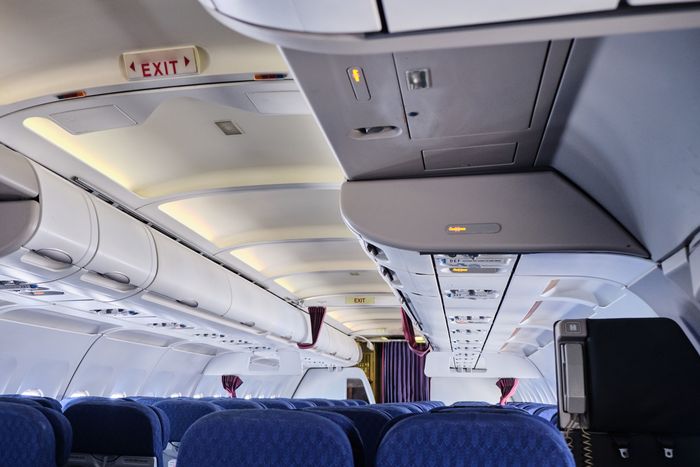Flying is the pursuit of a small global elite and it generates vast amounts of climate-damaging CO2. It is time for each individual to take responsibility.
In recent weeks, commentators in various German media have claimed that we "don't have to be ashamed of flying". Two of the most frequently cited arguments are, firstly, that flying is only responsible for a small percentage of global emissions, no air traveller has to worry about it. And, secondly, it is argued that in the near future the climate problem will be solved by technical innovations, and flying will become more and more efficient.
From a scientific point of view, the situation is different. To begin with, it is important to point out that only an estimated three percent of the world's population travels to another country within a year. In Germany, too, less than half of the population uses airplanes. Flying is, at least globally speaking, the pursuit of a small elite.
Even within this elite, flying is not evenly distributed. There are a small proportion of air travellers who fly a lot, up to 300 times a year. These frequent flyers can cover hundreds of thousands of miles and produce thousands of tons of CO2. By comparison, an average citizen on Earth emits less than five tons of CO2 a year; even in Germany, the average is "only" nine tons of CO2.
Taking responsibility for emissions
Whether you fly is therefore very relevant for the climate. That is precisely why we also need a debate on who causes how many emissions and for what purpose. There are people who fly once a year to a well-earned holiday destination close by. But there are also business travellers who make additional long-haul journeys just to stay in their frequent flyer status class. In English we talk of "mileage runs".
This is precisely the starting point of the debate on the disgrace of flying: it calls on every individual to take personal responsibility for emissions. Since the 1990s, the German government has been trying to oblige industry to reduce emissions. This production-related approach did not work, the German climate targets were not met.
The strategy did not work because a small group of "super emitters" is generating ever-increasing emissions. The argument that the relatively small share of an economic sector in total emissions makes it irrelevant, is testament to a fundamental lack of understanding of social structures and the dynamics of emissions trends.
That is why the idea that technology can fix everything is wrong. Aircraft are becoming more and more efficient, that is true. But more and more people are flying too. Efficiency gains of one percent per year are offset by an increase in demand of up to seven percent per year. As a result, air traffic emissions double every 20 years or so. This will not change without a serious climate policy.
To limit global warming to two degrees Celsius, all sectors must reduce their emissions. In aviation, this will only be possible if taxes are levied at a level that makes the development of alternative technologies and fuels economically viable. Taxes should therefore be levied on the basis of the CO2 emitted, be sufficiently high (50 euros per ton is realistic), and rise continuously.
Subsidies benefit frequent flyers
The argument that such a policy would destroy jobs or deprive poor families of their holiday opportunities is untenable. Air traffic in Germany is heavily subsidised, which means that it is more expensive to travel by train than to fly. These subsidies are therefore of particular benefit to the frequent-flyer economic, cultural and political elites. Really poor families do not fly to their holiday destinations.
Surely we also need a better understanding of exactly what CO2 is and how much CO2 is produced where. Especially in the case of energy-intensive air travel, it should be easier to understand how harmful these are to the climate. It would be helpful if information on emissions were detailed on every ticket sold: "This trip generates 800 kilograms of CO2, which corresponds to 20 percent of the sustainable emissions of 4000 kilograms of CO2 per person and year".
Travellers would therefore not only be able to better assess what a flight means for the climate, but also think about alternatives. Should I take the train instead? What is the most climate-friendly airline? Should I buy carbon offsetting? Being ashamed of taking a flight is a good way to start protecting the climate.
Stefan Gössling is a professor at the Institute for Service Management at Lund University and at the School of Business and Economics at Linné University in Kalmar (both Sweden). He conducts research on climate change, mobility and tourism. Gössling advises numerous international organisations and governments and is co-author of the 4th IPCC Framework Report.



